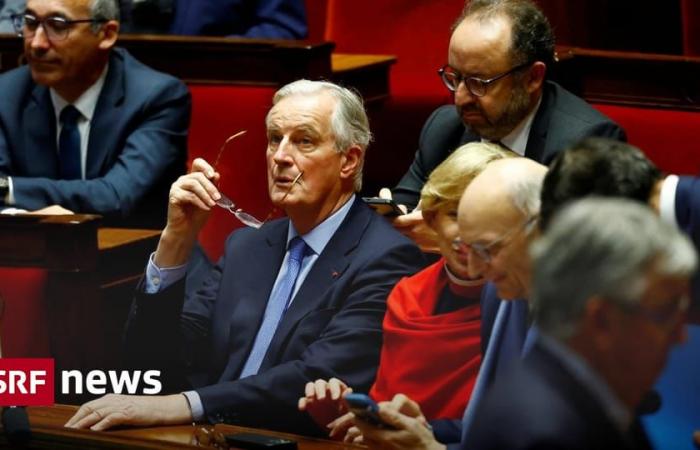With the end of the Barnier government, the budget for next year also fails – and with it the restructuring of French public finances. This is problematic: France has the third highest debt ratio in the eurozone after Greece and Italy. At some point, the price of new debt could become too high for France, warns economist Manuel Oechslin from the University of Lucerne.
Manuel Oechslin
Professor of International Economics, University of Lucerne
Open the people box
Personen-Box suction cups
Manuel Oechslin is a full professor of economics. According to the University of Lucerne, his research and teaching focuses on international economics and macroeconomics.
SRF News: France last had a balanced national budget 50 years ago. How can a country live on credit for so long?
Manuel Oechslin: The national debt in France has grown from around 66 to 112 percent of economic output over the last 20 years. The deficits are sustainable until the rising interest burden severely limits the scope for fiscal policy. Then budget restructuring becomes the least bad option for politicians. But: If the economy is growing strongly, national debt can fall even if there are deficits. This has been the case in France at least for the last two years.
There is therefore a lack of political space to introduce significant relief measures.
Given this high debt burden, what are the immediate consequences of the failure of the Barnier government’s budget proposal?
With the vote of no confidence, the budget for 2025 is off the table – and with it the planned relief measures of around 60 billion euros in the form of tax increases and budget cuts. The next government will probably not have a parliamentary majority. This means there is no political space to introduce significant relief measures.
The EU initiated an excessive deficit procedure against France this summer. If the country does not restructure its budget, it could face punitive measures. Is the EU now imposing fines on France?
Sanctions are not automatically imposed in the event of an excessive deficit procedure against an EU member. This is ultimately a political decision in which all member states are involved. Many EU countries are struggling with financial problems themselves. Against this background, their desire to impose penalties on France is likely to be low given their own interests – even if the country is not now relieving its budget.
For economic and political reasons, France is simply “too big to fail” for the Eurozone.
To what extent can the situation in Greece during the “Euro crisis” be taken into account?
compare with today’s conditions in France?
I think the comparison with Greece is exaggerated. French private households have relatively high net assets and the economy is comparatively productive compared to the rest of the EU. It is broadly diversified, has a large industrial base and attracts a lot of foreign direct investment. Apart from that, France is a political heavyweight as the second largest economy and a founding member of the EU. This means that France is simply “too big to fail” for the Eurozone for economic and political reasons.
Nevertheless, there has already been talk of a second “Euro crisis” – what do France’s problems mean for the Eurozone?
It’s not just France that has to save – other EU countries also have to trim their government spending. In the short term, this slows growth. The economic prospects for the EU for the coming year are therefore cautious. Other state tasks could be lost sight of: Ukraine’s defense capability or support would then suffer, potentially threatening the continent with problems of a larger caliber.
The interview was conducted by Marco Schnurrenberger.






